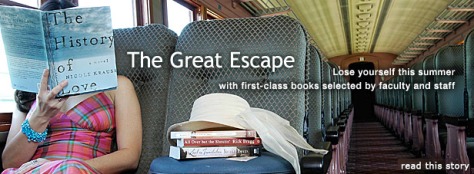
A few years ago there was a push to make more people use public libraries. One of the slogans was, ‘Lose yourself in a good book’. I liked this slogan because there is something nice about forgetting yourself and drifting away into another world. Clearly the library marketing department also thought so.
In its extreme form ‘losing yourself’ is to live like Walter Mitty or Billy Liar. Most people would probably agree that to take things to such an extreme is not healthy. On this view, losing yourself for a while is okay but you shouldn’t completely lose touch with reality. Maybe The Everly Brothers stated the problem most succinctly in the song All I have to do is Dream:
I can make you mine
Taste your lips of wine
Anytime, night or day
Only trouble is
Gee Whiz
I’m dreaming my life away
I started to think about such things about twenty years ago. That’s when I decided that before I died I wanted to understand the world better. I pictured myself lying on my death bed thinking, ‘Well, that was weird. I have no idea what it was all about and now it’s too late to find out.’
So while I still had time I started reading science and philosophy books to see if someone actually knew what life was all about. I read mostly about evolution and I concluded that life is really all about reproducing yourself, or rather, reproducing your genes. Then I learned that we aren’t mere animals at the service of our genes but robots made of flesh, rebelling against their genetic masters. Soon I was reading about evolutionary psychology, history, politics and economics. Before I started my program of self-education I couldn’t imagine anything more boring than such topics.
Over the past twenty years most of my free time has been spent reading that stuff, as opposed to the novels I used to read. Nowadays I want to spend my time orientating myself in the world and in history rather than merely being entertained.
I have learned more about academic subjects in these past twenty years than I ever did at school or university. I can now generally contribute something to discussions on the driest of topics, just so long as the talk doesn’t become too highbrow. Occasionally I go on at too great a length when some unsuspecting person innocently asks me what am reading at the moment or what I think of some topic.
But a couple of things about my quest for knowledge never felt quite right. One was that none of my ideas and opinions were my own. Of course I thought about what I was reading and digested it but I was often won over too easily to an author’s point of view. I came to trust some writers, but probably because their views fitted in with my already existing views. I then passed off my new views as self-evident, as though anyone who thought otherwise was a complete fool, even though I myself had been just as foolish five minutes previously.
To give just one example, my reading has convinced me that races differ in intelligence. Ashkenazi Jews are top, followed by north-eastern Asians (Japanese, Chinese, Koreans) and then whites. Bottom of the league come Pygmies, African Bushmen and Australian Aborigines with Indians, Arabs, South Americans and people of mixed race somewhere in the middle. Yet there is no way I could have come to this conclusion through observation alone. I simply haven’t met enough Pygmies or Bushmen to be able to judge. And the same is true of all of my academic knowledge. It is all taken on trust.
Of course, the same applies to most knowledge held by most people. We just don’t have enough time or brain power to work out everything for ourselves from scratch. Therefore most our beliefs are formed by what we have read or heard. Many people have read books that insist that all races are equally intelligent. Like me, these people have taken what they read on trust and don’t have strong enough reasons to question their beloved authors. Yet the ‘knowledge’ they have acquired feels so true to them, just as mine does to me.
The more I thought about all this, the more I saw how my head was filled with other people’s ideas; ideas I had caught like some virus. Although such knowledge can be useful it doesn’t feel truly mine.
Of course, if I didn’t read anything I would know no more about the world than an Anatolian shepherd and such ignorance is arguably worse than doing your best to find who to trust and who to view as deceitful or just plain wrong.
Yet the more time goes by the less inclined I am to spend it reading. Nowadays I’m trying to lose myself less in books, TV programs, daydreams, alcohol or anything else. Instead I’m trying to notice what it feels like to be alive; to notice the pattern in the carpet on a dull afternoon or feel the cool of the banisters as I go downstairs. Such things are not especially compelling but they are real. And they are mine.
So rather than keeping up to date with the pros and cons of fracking and which rogue state is developing nuclear weapons I think I’ll just potter around in my garden, feel the crunch of snails under my shoe and the light drizzle on my hands and neck. Before everything goes black forever I want to be able to say that, on random occasions, I emerged from my dream-like existence and noticed what it feels like to actually be alive – before slipping back again into books and forgetfulness.